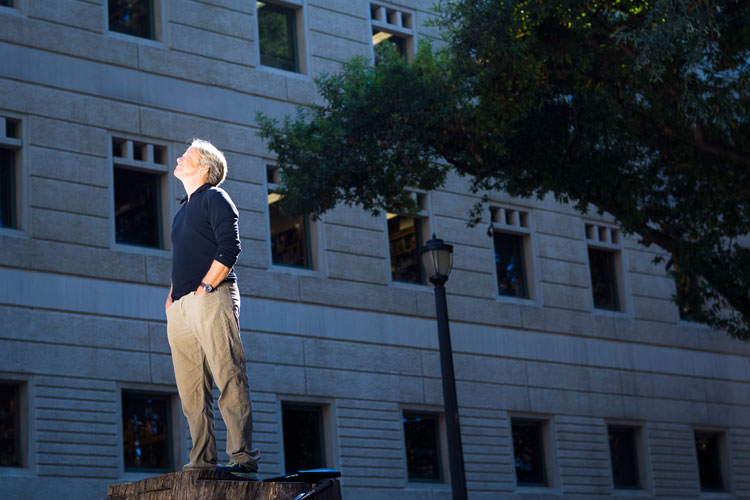Dacher Keltner on how to recover from 2020 and start afresh
Happiness, Keltner sais, is not about putting on a happy face, but about figuring out how to overcome formidable hurdles, and to make room for daily practices that enhance our lives and give us a sense of purpose and of joy.

November 20, 2020
As the curtain closes on 2020, a year darkened by unfathomable death, disease and destruction, is it possible to find relief, let alone happiness?
In an hourlong, livestreamed Campus Conversations event with UC Berkeley psychologist Dacher Keltner on Thursday, Nov. 19, moderator Dan Mogulof and online viewers had these and other questions.
Among other things, they wanted to know where to find happiness in the face of inequities exposed by COVID-19; a bitterly polarized U.S. electorate; cancel culture amplified by social media; and entrenched power structures that benefit from the status quo.
“Humans are complicated. We have evolved to protect our own kind, often using violence and genocide,” said Keltner, who teaches an online Science of Happiness course. “But we must also think about the social conditions and practices and policies that prevent people from finding the good in human nature” and change them.
Time and again, Keltner, the founding director of UC Berkeley’s Greater Good Science Center, acknowledged the barrage of assaults on many people’s sense of safety and well-being — including inequality, white supremacy and sexual violence — but advised his audience not to give in to hopelessness and cynicism.
He noted that reams of research show that kindness, empathy and cooperation are what makes the human species so successful.
Happiness, Keltner assured, is not about putting on a happy face, but about figuring out how to overcome formidable hurdles, and to make room for daily practices that enhance our lives and give us a sense of purpose and of joy.
For example, regularly observing awe, curiosity and gratitude can reduce cytokines, which are proteins that signal the body’s immune system to go into overdrive and, in some cases, lead to more distress and inflammation.
“Inflammation causes depression and anxiety and vulnerabilities to autoimmune disease and cardiovascular disease,” he said. “Our country is hyper-inflamed.
Rather than despair, Keltner appealed to his audience to think about the changes they can make by putting this annus horribilis behind them and starting afresh.
“I challenge everybody to think about how to prioritize community right now. It’s going to involve things like walking more with friends. It’s going to require saying, ‘Maybe I should listen to music more. Maybe I should take five minutes a day and just slow time down and breathe.’”